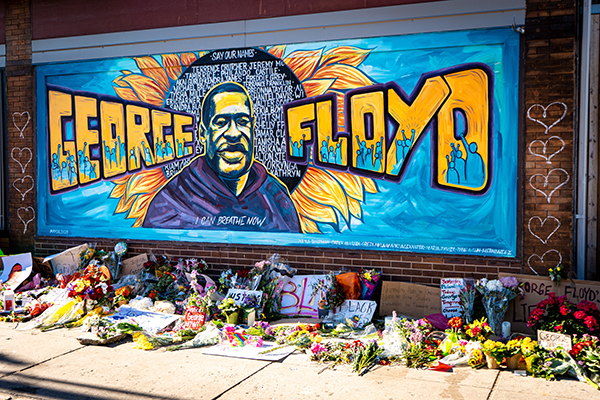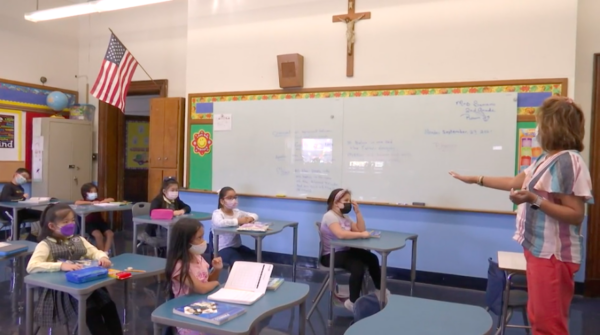New curriculum in diocesan schools gives kids chance to ‘discuss sensitive issues’
PROSPECT HEIGHTS — The murder of George Floyd and other racially charged events that have taken place in the U.S. over the past 18 months has led to a national reckoning. In the Diocese of Brooklyn, officials are hoping that, out of the tension and division, seeds of tolerance and understanding can be sown.
In September Bishop Nicholas DiMarzio announced the introduction of a new Catholic social justice curriculum that will be incorporated into religion classes in all schools, Catholic academies, and religious education programs in the diocese.
The new curriculum, which started this school year, comes in response “to the difficulties we have witnessed in our communities and in our nation,” Bishop DiMarzio said. “Within the last year, the significant increase in overt acts of hate and racism is alarming.”
The curriculum will focus on a particular theme each month during the school year. In September, for example, the theme was “Solidarity: All Are Welcomed and Loved.” October’s theme is “Call to Family, Community and Participation.”
In subsequent months, students will be learning about such topics as workers’ rights, Black History Month, Women’s History Month, and “Life and Dignity of the Human Person.”
Each theme will be broken down into age-appropriate lessons for the classroom. In the fourth grade, children learning about workers’ rights will focus on farmworkers. Eighth-grade students learning about black history will focus on the Reconstruction Era following the Civil War; they will discuss the challenges faced by freed slaves.
Father Joseph Gibino, vicar for evangelization and catechesis for the diocese, who is spearheading the implementation of the curriculum, said schools and academies have already been sent lesson plans pre-approved by the diocese.

“This has all been planned very carefully,” he said, “Our goal is to create a safe place where students can discuss sensitive issues.”
All of the lessons are rooted in Scripture and in the teachings of Jesus Christ, Father Gibino said.
Margaret Tyndall, principal of Our Lady of Perpetual Help Catholic Academy in Sunset Park, applauded the diocese’s vision.
“I am glad to see that this has been enforced, and a part of the reason is that a lot of educators are not comfortable speaking about race or speaking about gender, or speaking about some of the things that the Catholic Church holds dear,” she told Current News. “I have been in schools where Black History Month was not celebrated when they teach history. You can’t go forward unless you understand where you’re coming from.”
Dr. Thomas Chadzutko, superintendent of schools for the diocese, said teaching students lessons on tolerance and acceptance is vital “if we are to look to bring an end to the tension and uneasiness that exists in our society due to racism.”
The new curriculum “has nothing to do with critical race theory,” Father Gibino said, referring to the controversial field of study which holds that racism is embedded into the fabric of America through its institutions.

Rather, the curriculum is meant to help students grasp complex issues, educators said.
“We’re taking a step away from the textbooks and teaching the children more about the world around them and how they can carry on the Word of God,” said Rosaleen DeGregorio, who teaches eighth grade at Our Lady of Perpetual Help Catholic Academy in Sunset Park.
She called the curriculum “a newer, better approach.”
The curriculum came out of discussions led by the Commission on Racism and Social Justice, a panel established by Bishop DiMarzio in 2017 in the wake of the white supremacist protest demonstrations in Charlottesville, Virginia.
Over the past three years, members of the commission have held listening sessions in churches and have spoken with clergy and educators about how to combat racism.
“We found that a common thread in our schools was the need and the desire for a curriculum like this,” said Tevin Williams, a commission member.
